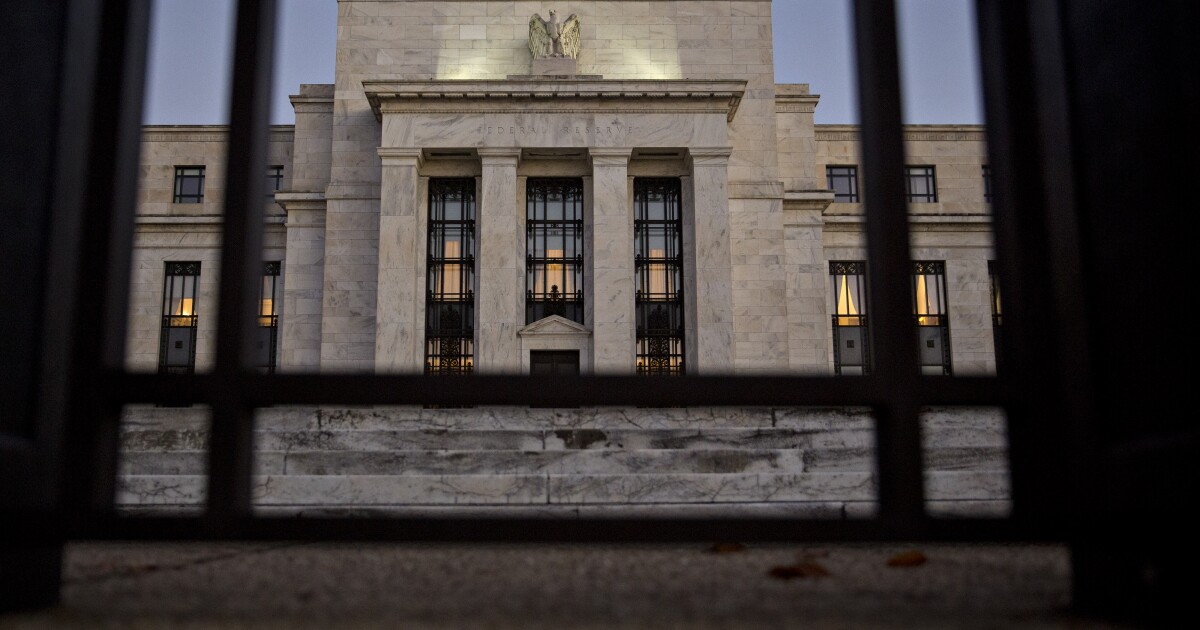
The housing market's leading trade groups are pleading with the Federal Reserve to publicly project calm to help stabilize "painful and unprecedented" mortgage rate hikes.
The Mortgage Bankers Association, the National Association of Home Builders and the National Association of Realtors wrote Monday to Fed Chairman Jerome Powell, urging the central bank to make two statements. The Fed, the groups say, should declare it's not contemplating further rate hikes and that it won't sell off mortgage-backed securities until the Treasury yield curve normalizes.
"We urge the Fed to take these simple steps to ensure that this sector does not precipitate the hard landing the Fed has tried so hard to avoid," the letter, which was unsigned but featured the trade groups' logos, said.
The groups' letter came a day before a top Fed official Tuesday suggested the central bank leaders are in a position to "proceed carefully." Atlanta Federal Reserve Bank President Raphael Bostic meanwhile Tuesday afternoon said no more rate hikes were needed.
Powell last month, speaking after the Fed's most recent pause, acknowledged the "lock-in" effect of home buyers with low rates staying put freezing home sales. The Federal Open Market Committee wouldn't think twice about bringing rates down solely because of the housing market's woes, he added.
The 10-year Treasury was 4.6% on Sept. 30, a 16-year high, according to Freddie Mac. That figure helped to push mortgage rates last week to 7.49%, a level not seen since 2000. Mortgage application activity meanwhile was down 18.5% year-over-year last week and hit its lowest level since 1996, the MBA said.
The groups wrote Monday the yield curve's historic highs indicated "deep-seated uncertainty" about the Fed's next move.
The current spread is creating mortgage rates for homebuyers at least 120 basis points higher than they otherwise would be, the letter said. The groups estimate the spread equates to an extra $245 in monthly payments on a standard $300,000 mortgage.
The Fed, meanwhile, is allowing $35 billion in MBS to run off its books, and as of last Wednesday had $2.4 trillion in MBS assets, according to data from the St. Louis Fed. The central bank's MBS holdings rose as high as $2.7 trillion last spring before it began raising interest rates.
Shelter costs were up 7.3% alongside consumer prices up 3.7% in August, according to a Consumer Price Index report. Shelter inflation was responsible for 90% of the consumer price gains in July, the letter highlighted. Rents, like home prices, also remain elevated although their annual pace of growth has cooled.
Today's lending conditions have also impacted servicers, prominent industry leaders advised. Servicers are less inclined to pull older, low-interest loans out of mortgage pools to execute loss mitigation actions.
David Stevens, a former MBA leader and CEO of Mountain Lake Consulting, and Scott Olson, executive director of the Community Home Lenders of America, also called on the Fed to buy long-term mortgages. In addition, they suggest Fannie Mae and Freddie Mac's preferred stock purchase agreements should be amended to allow for expanded mortgage purchases, albeit temporary.
"Everyone expects rates and spreads to decline; so concerns about interest rate risk are very limited, and chances are the GSEs would make a profit by doing so," the leaders wrote.
The FOMC will meet Oct. 30.



